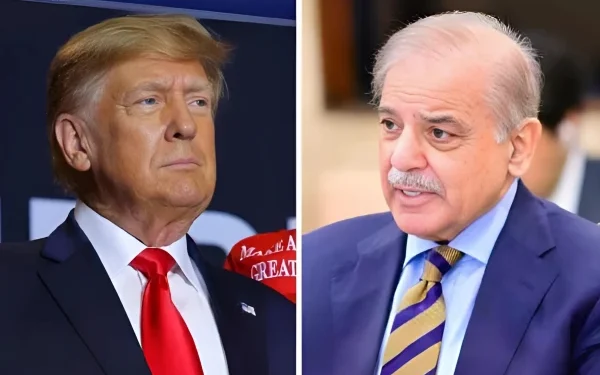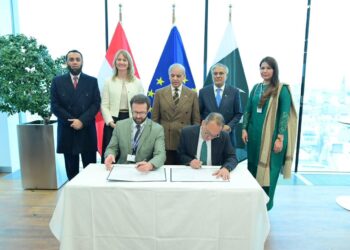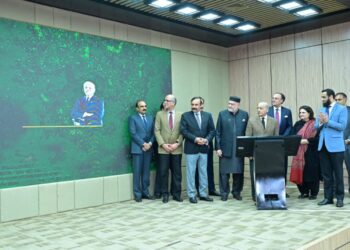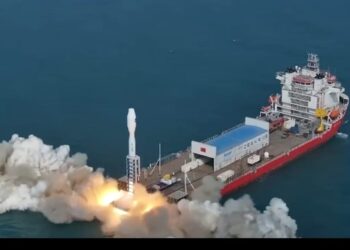Islamabad — In a historic diplomatic gesture, the Government of Pakistan has formally announced its intention to nominate U.S. President Donald J. Trump for the 2026 Nobel Peace Prize. The decision, which marks a rare acknowledgment by a nuclear-armed South Asian state of an American president’s role in preventing war, is rooted in President Trump’s crucial intervention during the 2025 military standoff between Pakistan and India.
A Diplomatic Breakthrough Amidst Rising Regional Tensions
According to the official statement issued by the Pakistani government, the nomination is being made in recognition of President Trump’s decisive diplomatic leadership and strategic foresight, which played a critical role in preventing an all-out war between the two South Asian nuclear powers. The diplomatic efforts led by President Trump, the statement said, brought about a ceasefire and de-escalation at a time when tensions were at their peak.
The incident referenced stems from a serious cross-border escalation in early 2025, when India allegedly conducted an airstrike inside Pakistani territory, violating Pakistan’s sovereignty. The aggression resulted in civilian casualties, including women, children, and elderly citizens, prompting a response from the Pakistani military under the operation codenamed “Banyan Marsus.”
Operation Banyan Marsus: Pakistan’s Measured Response
In response to Indian aggression, Pakistan launched a calculated military operation — Operation Banyan Marsus — targeting only strategic locations without inflicting widespread damage or civilian harm. Pakistani officials stressed that the operation was defensive and restrained, deliberately avoiding further escalation despite strong public sentiment demanding retaliation.
While the region appeared to be spiraling toward a broader conflict, it was at this juncture that President Donald Trump stepped in as a mediator, initiating parallel dialogues with both Islamabad and New Delhi.
Trump’s Role as Peacemaker: Behind the Diplomatic Curtain
President Trump’s administration, through backchannel diplomacy and open communication lines, succeeded in facilitating direct contact between the two governments. According to senior Pakistani officials, Trump held a series of intensive diplomatic consultations, involving direct phone calls with Prime Minister Shehbaz Sharif and Indian Prime Minister Narendra Modi, as well as several meetings between envoys.
The U.S. Department of State, led by Secretary of State Marco Rubio, was instrumental in these efforts, dispatching special envoys to South Asia to monitor the crisis and ensure that constructive negotiations remained active.
As a result, a ceasefire agreement was reached within 72 hours, effectively halting a dangerous trajectory that experts warned could have spiraled into the first nuclear exchange in the region since both nations became nuclear powers in 1998.
The Kashmir Conflict and President Trump’s Offer of Mediation
In its official statement, the Government of Pakistan also expressed appreciation for President Trump’s reiteration of his willingness to mediate on the long-standing Kashmir dispute — a conflict that remains at the heart of instability in South Asia.
Pakistan emphasized that the issue of Jammu and Kashmir, unresolved since the partition of British India in 1947, must be resolved in accordance with United Nations Security Council resolutions and the aspirations of the Kashmiri people. President Trump’s support for a peaceful resolution through dialogue is being seen as a significant shift in the U.S. approach to the region.
Averting Global Catastrophe: The Global Implications
Had the Indo-Pak conflict escalated, the consequences would have been devastating not just for South Asia, but also for global security, given the nuclear capabilities of both nations. Experts at the International Crisis Group and the Stockholm International Peace Research Institute (SIPRI) had warned of economic destabilization, mass migration, and humanitarian disasters in the event of war.
Pakistan’s statement highlighted that President Trump’s intervention may have prevented one of the most serious crises of the decade, adding that such peacemaking efforts deserve international recognition.
Regional Stability and Wider Diplomatic Impact
In addition to South Asia, Pakistan noted President Trump’s ongoing efforts to promote peace in other volatile regions, particularly the Middle East. The Pakistani government referenced Trump’s statements calling for a ceasefire in Gaza, and restraint in the Iran-Israel conflict, which continues to threaten broader regional stability.
Officials in Islamabad said they hope Trump’s peace-first approach will continue to shape international diplomacy and encourage negotiated solutions to long-standing conflicts.
Nobel Peace Prize Criteria and Justification
The Nobel Peace Prize, awarded by the Norwegian Nobel Committee, recognizes individuals or organizations that have “done the most or the best work for fraternity between nations, for the abolition or reduction of standing armies and for the holding and promotion of peace congresses.”
The Government of Pakistan, in its official letter of nomination, is expected to cite:
- President Trump’s successful diplomatic intervention in the 2025 Indo-Pak standoff,
- His public commitment to peaceful conflict resolution, and
- His proposed roadmap for peace in South Asia and the Middle East.
Legal and diplomatic experts note that while nominations are typically kept confidential, state-sponsored nominations carry significant weight in influencing global opinion and Nobel Committee considerations.
Global Reaction and Mixed Responses
Reactions to the Pakistani government’s announcement have been mixed. Supporters of President Trump, including several Republican senators and media commentators in the U.S., have welcomed the move, calling it a testament to Trump’s effective global diplomacy.
However, critics argue that Trump’s record on international peace is controversial, citing his administration’s withdrawal from various multilateral agreements. Nonetheless, his intervention in South Asia has been largely seen as pragmatic and timely, and the Pakistani government maintains that this specific act of statesmanship warrants recognition.
Conclusion: A Bold Diplomatic Gesture and a Message of Peace
The decision by Pakistan to nominate President Donald J. Trump for the 2026 Nobel Peace Prize marks a rare diplomatic acknowledgment across ideological and geopolitical divides. It underscores a recognition of effective leadership in crisis de-escalation, particularly in one of the world’s most volatile regions.
While the final decision lies with the Nobel Committee in Oslo, Pakistan’s move sends a powerful message — that peace, dialogue, and diplomacy must always be prioritized, and those who prevent war should be honored accordingly.
As tensions simmer in other regions, particularly Gaza, Ukraine, and the South China Sea, this episode reminds global leaders of the urgent need for bold, constructive diplomacy in averting conflict and promoting peace.

























